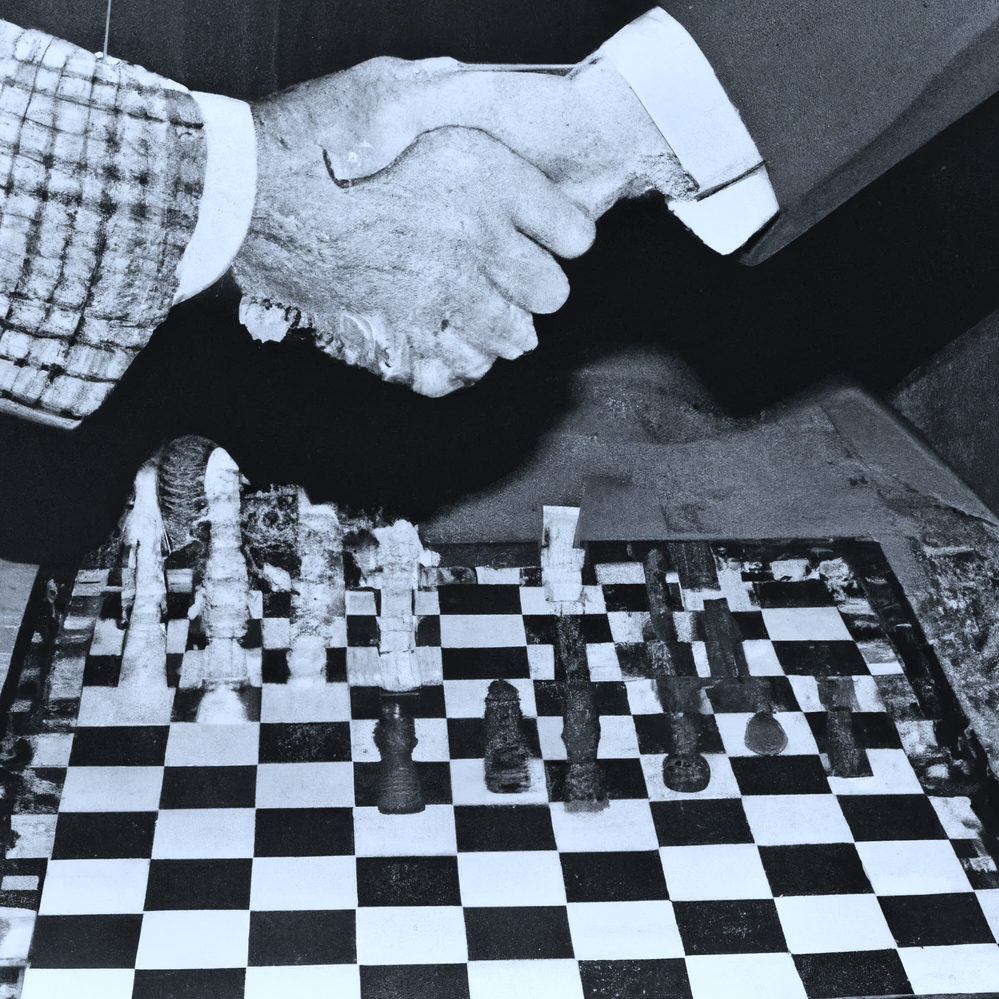Welcome to the World of Chess.
Chess is still the most popular game of all time. But why does it have to be so difficult to learn? This site will teach you some of the fundamentals you need to play chess. In a fun way, guaranteed.
Let‘s meet the Pieces.
Discover the protagonists. These are played in every game of chess.
The Pawn.
A grunt with great potential. Prefers to walk straight, except when throwing a jab. He symbolizes patience, bravery and sacrifice.
The Knight.
A versatile strategist who will consider all possible angles to surprise the opponent. He embodies strategy and unpredictability.
The Bishop.
A zealous priest who never attacks straight. Or changes color. He stands for faith but also for a limited view of things.
The Rook.
A strong protector that always attacks straight. He also has the power to protect the King. The Rook symbolizes brute force and protection.
The Queen.
The femme fatale of chess. Far stronger than any other piece in the game. The Queen embodies power, strength and ruthlessness.
The King.
A leader and the most important of our pieces. However very limited in his attack. The King symbolizes leadership, importance and old age (he moves slowly).
A short history of Chess.
From its ancient roots in India to its modern-day global popularity, chess has a rich and storied past. The game has seen five pivotal moments in it’s evolution, tracing its transformation from a pastime of kings to an international sport enjoyed by millions around the world.
600 AD
Birth of Chess, The Game of Kings
Chess was born in India, where it was originally known as Chaturanga. The game quickly spread to Persia and then to the Arab world, where it evolved into the chess we know today.

1475 AD
The Modern Chess Queen Takes Her Place
Before this year, the chess queen was only able to move one square diagonally. But in the late 15th century, a new version of the game emerged in Spain where the queen was given much more power, making it a much more dynamic game.

1851 AD
The Birth of the First International Chess Tournament
The world's first international chess tournament was held in London, with players from England, France, Germany, and other countries. The tournament was a huge success and led to the establishment of the first official world chess championship in 1886.

1948 AD
The World Chess Federation (FIDE) is Founded
FIDE was established after World War II to promote international chess competitions and standardize the rules of the game. Today, FIDE is the governing body of chess and oversees all official chess events around the world.

1997 AD
Deep Blue Defeats Garry Kasparov in a Chess Match
In a historic match, IBM's Deep Blue computer defeated Garry Kasparov, the world champion chess player. It was the first time a computer had beaten a reigning world champion, and it marked a significant milestone in the development of artificial intelligence.

4 good reasons, why you should learn Chess.
I like chess and I want you to like it too! Apart from having fun, there a various other benefits to playing this great game. Check out a few of them:
Zero judgments, always fair.
The game doesn’t care where you’re from, how old you are or how successful you are in other areas of your life. All that matters is your skill and how much practice you’ve put in.
Forever connecting people.
Chess was spread all over the world by travelers hundreds of years ago. To this day, it connects people from different cultures, ages and backgrounds together through a shared passion for the game.
Teaching us life lessons.
Everyone loves to win. But we don’t always do. There’s an old saying: “sometimes you GIVE a lesson, sometimes you GET one.” Just like in life, in chess we can learn to deal with failure.
Easy to learn, play everywhere!
The rules are learned quickly, and it doesn't take much to play the game. For relatively little money you can already get a chess set that fits in every pocket. You can even play online!
Want to start
learning Chess?
Download my digital guide to Chess, designed by me.
Completely for free.
Coming soon!





